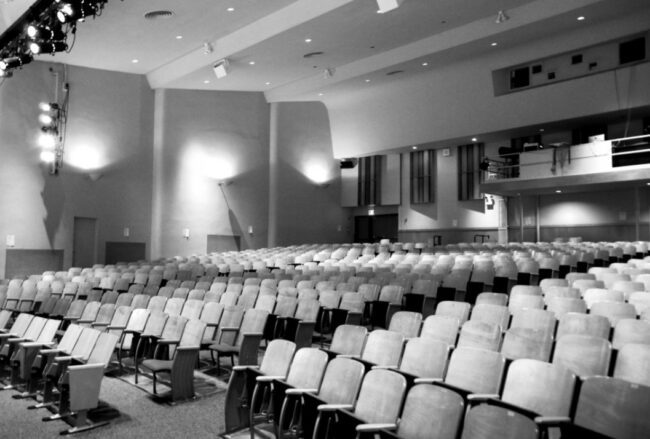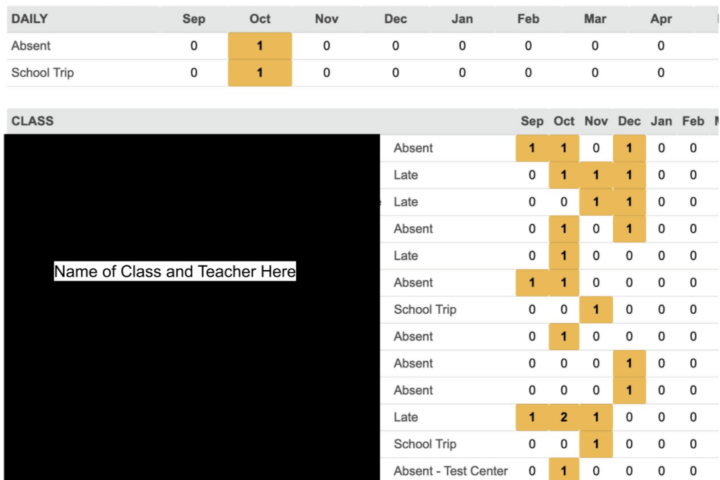Editors’ Note: This article was originally completed on November 27th. In the current news cycle, amidst multiple international crises, that’s an eternity. Since then, there have been many updates relating to the war, including changes to the terms of the “pause” in fighting in Gaza and new instances of Islamophobia and antisemitism at home and abroad.
Background
On October 7th, the decades-long, politically unresolved Israeli-Palestinian conflict reignited when Hamas, a militant Islamic group deemed a terrorist organization by the United States, fired a barrage of rockets into Israel and invaded its southern border, killing at least 1,200 civilians, injuring over 6,900 and kidnapping over 200 hostages. Israel responded by swiftly declaring war on Hamas and launching airstrikes on the Gaza Strip, which Hamas controls.
Israel has continued striking northern Gaza since October 7th, killing over 15,000 people and injuring at least 35,000, with more than 75% of those being women and children, according to the Hamas-run Gazan health ministry. In the Occupied West Bank, which is not governed by Hamas, 200 people have died, including 51 children, and 2,750 have been injured in attacks on Palestinians.
The scale of the conflict and the growing humanitarian crisis in Palestinian territories triggered a worldwide debate about whether or not there should be a ceasefire. On November 22nd, with significant pressure from mediators such as the United States and Qatar, Israel and Hamas agreed to a four-day pause to the war with the aim of releasing 50 hostages in Gaza in exchange for 150 Palestinian prisoners kept in Israel. The pause went into effect on November 24th.
Islamophobia and antisemitism have seen sharp increases across the world since the beginning of the war. In the weeks after October 7th, Islamophobia and anti-Arab sentiments have increased by 216% over the same period last year, according to the Council on American-Islamic Relations. Furthermore, the Anti-Defamation League (ADL) reported that antisemitic incidents of harassment, vandalism and assault had increased by 388% over the same period in 2022.
Fieldston and the War
Immediately following the October 7th attacks, Head of School Joe Algrant sent an email to Fieldston community parents condemning all violence and voicing support for all those affected. Algrant expressed his confidence in students’ ability to carry out the school’s mission of empathy and selflessness, recognizing that “the notion of deed over creed will propel our students to help themselves by helping those in need.” Algrant also provided a resource from the National Child Traumatic Stress Network to help parents engage in conversations regarding the attacks with their children. Algrant and the principals led several round-the-clock small groups and individual discussions with parents, students, faculty and staff.
Deans read aloud Algrant’s initial email to students in form-wide meetings, leading many unsatisfied students to accuse the school of being too tentative in its response. Upper School Principal Stacey Bobo revealed the thought process behind the school’s cautious response, saying, “This is a very emotional topic for some people: people have family that they’ve lost and people have been harmed and hurt. Nobody wants to say the wrong thing, including myself.”
The school’s silence broke during the MAD (Modified Awareness Day) assembly when guest speaker Tomi Adeyemi, the author of this year’s summer reading book, “Children of Blood and Bone,” brought up the war and advocated for a “ceasefire”. Adeyemi’s comment led to a divided response, with some members of the community applauding and others exiting the auditorium.
The Fieldston News recently covered the assembly and resulting aftermath extensively in an earlier article, “Breaking the Silence: Fieldston Students and The Israel-Hamas War”, by Clara Tripp (Form V).
Several affinity groups have held meetings since the onset of the war, including the Jewish Affinity Group (JAG) and the newly established Muslim Student Association. However, while students were given a voice in their respective affinity groups, many expressed the desire to be taught about the conflict and discuss it in the classroom, acknowledging that it is not productive to merely talk in an echo chamber with people who share similar experiences.
In light of students’ wishes, the administration came up with short, medium and long-term responses. On November 20th, Dr. Laura Frank, the director of the American Jewish Committee’s Jewish education initiatives and communal research and programming, led an assembly on the history of the conflict leading up to October 7th. Following the assembly, numerous affinity groups and advisories held hour-long discussions to debrief and discuss the topic.
Later in the afternoon, educator Morris H. Ervin led optional restorative justice circles – these circles did not directly cover the Israel-Hamas conflict, but rather how to openly and empathetically have productive dialogues.
That evening, the parent JAG – an affinity space for Jewish-identifying guardians of Fieldston students – held an assembly against antisemitism in the auditorium. The event included speeches from nine students, math teacher John Kurtz, the ADL’s regional director Scott Richman, Deputy Director of Jewish Affairs for the New York State Executive Chamber Eve Wyner and New York City councilmember Eric Dinowitz. See photos of the event, courtesy of Noah Bilerman (Form IV), here.
On November 21st, Jason Craige Harris of Perception Strategies spoke with affinity group leaders about ways to have more effective and cross-cultural conversations. While the world is living in distressing and chaotic times, it was universally clear from Harris’s visit that students are ready and eager to engage with one another, listen closely to each other and possibly even bridge understandings with one another. This is beginning with the formation of a Muslim/Jewish Student Alliance.
Looking ahead, Algrant stated, “I believe that for ECFS the best way forward is to stand on our mission as an institution that believes so strongly in the humanity of all, that believes in justice and belonging, and the importance of education as the means to lifelong achievement. We have a very broad base of families in the School and the expectation is that we will work to make sure that everyone feels that they belong.”






